Nine Indonesian men caught illegally harvesting 170kg of Trepang, sea cucumber used as an aphrodisiac
Nine Indonesian fishermen face the threat of a $76,000 penalty after they were busted harvesting a slimy sea creature believed to have aphrodisiac powers off the coast of the Northern Territory.
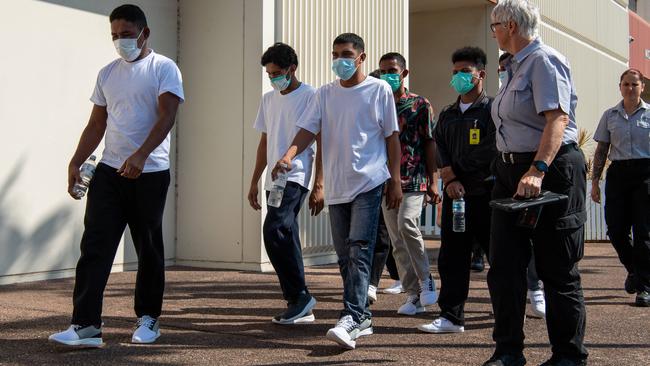
Police & Courts
Don't miss out on the headlines from Police & Courts. Followed categories will be added to My News.
The hunt for sexy sea slugs has landed nine Indonesian men before the Australian courts after they were busted illegally fishing off the coast of the Northern Territory.
On Tuesday, the boats’ skipper Hasdani, and his crew Asdar, Budiato, Culu, Musri, Narudin, Rislan, Rudianto and Yamal appeared in Darwin Local Court to plead guilty to using a foreign boat to fish in a Territorial sea.
Hasdani faced an additional charge of having a foreign boat equipped for fishing in the Australian Fishing Zone.
The court heard the nine men, aged between 21 and 77, were busted across two boats harvesting 170kg of Trepang, or sea cucumber — which is used in food and medicine in Asia, and believed to be an aphrodisiac in China.
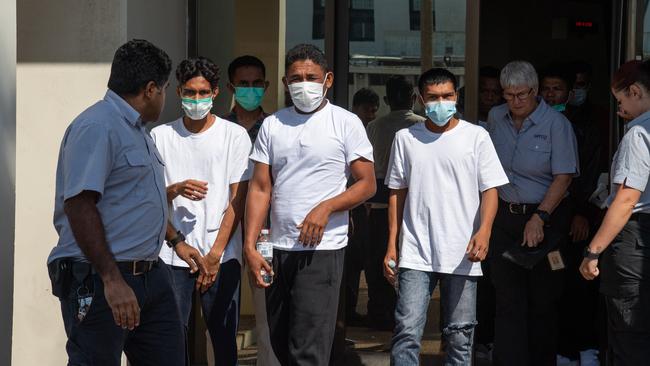
Judge Greg McDonald heard the agreement was the yield would be split “50-50”, with half going to the boats’ owner and the remaining split between the nine men who took on the risk of going into Australian waters to harvest the expensive delicacy.
Mr McDonald said while Trepang trade had a long history in the Territory, the Indonesian men had effectively stolen from local people.
“That is Aboriginal land, those resources belong to those Indigenous people,” he said.
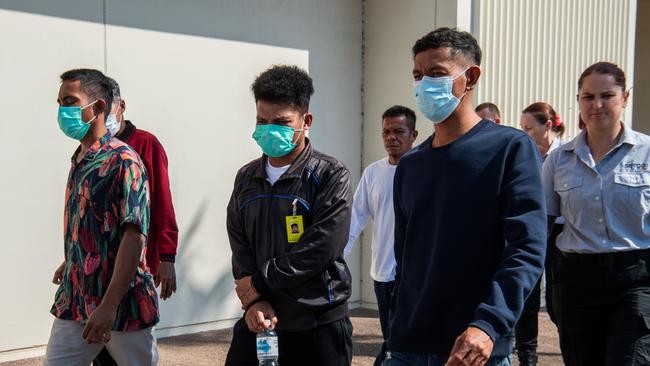
“In centuries gone by people from Indonesia would negotiate, talk, and reach an agreement with those people to get the Trepang — not just take it.”
Mr McDonald said he believed Hasdani, as the captain, was the “most culpable” of the men, as the 33-year-old was the one to enter the agreement with the owner.
Hasdani was convicted and handed a $12,000 recognisance order, and told if he was caught fishing in Australian waters any time in the next five years he would either have to pay that sum or spend 120 days in prison.
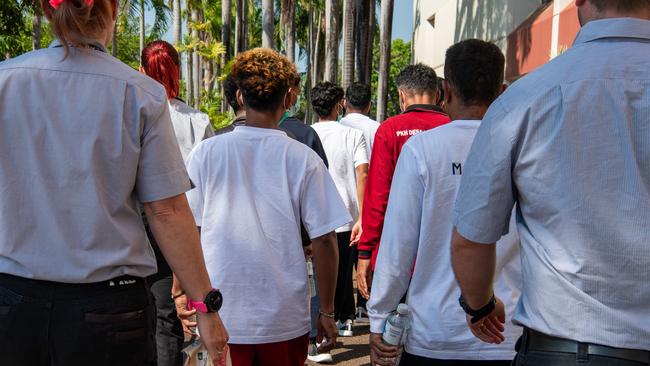
His crew was each given four year orders of $8000 — or $80m Indonesian Rupiah — with the threat of a 80-day stint in prison.
Mr McDonald said while Holtze prison may not be as bad as the notorious Indonesian prison Kerobokan, “it is still a harsh punishment in Australia — it’s not a good place”.
Defence lawyer Harry Hollingsworth pointed out the nine men had already spent six weeks in pre-charge detention, firstly in the hull of a boat and then for three weeks in detention in the Frontier Hotel Darwin.
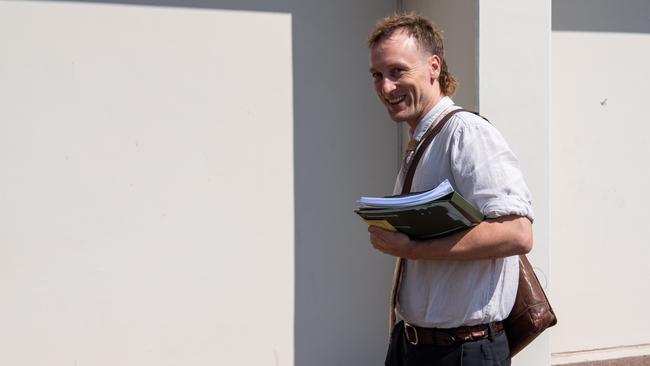
Mr Hollingsworth said these conditions were “particularly onerous” with the men, who cannot speak English, unable to contact their families or leave their informal places of detention.
Mr McDonald acknowledged the fishers would likely face “consequences” from the owner, as both boats had been destroyed.
“The boat is probably worth an awful lot more than the penalty that the court imposes on you today,” he said.
“I do accept there will be consequences for you, and possibly the crew.”





